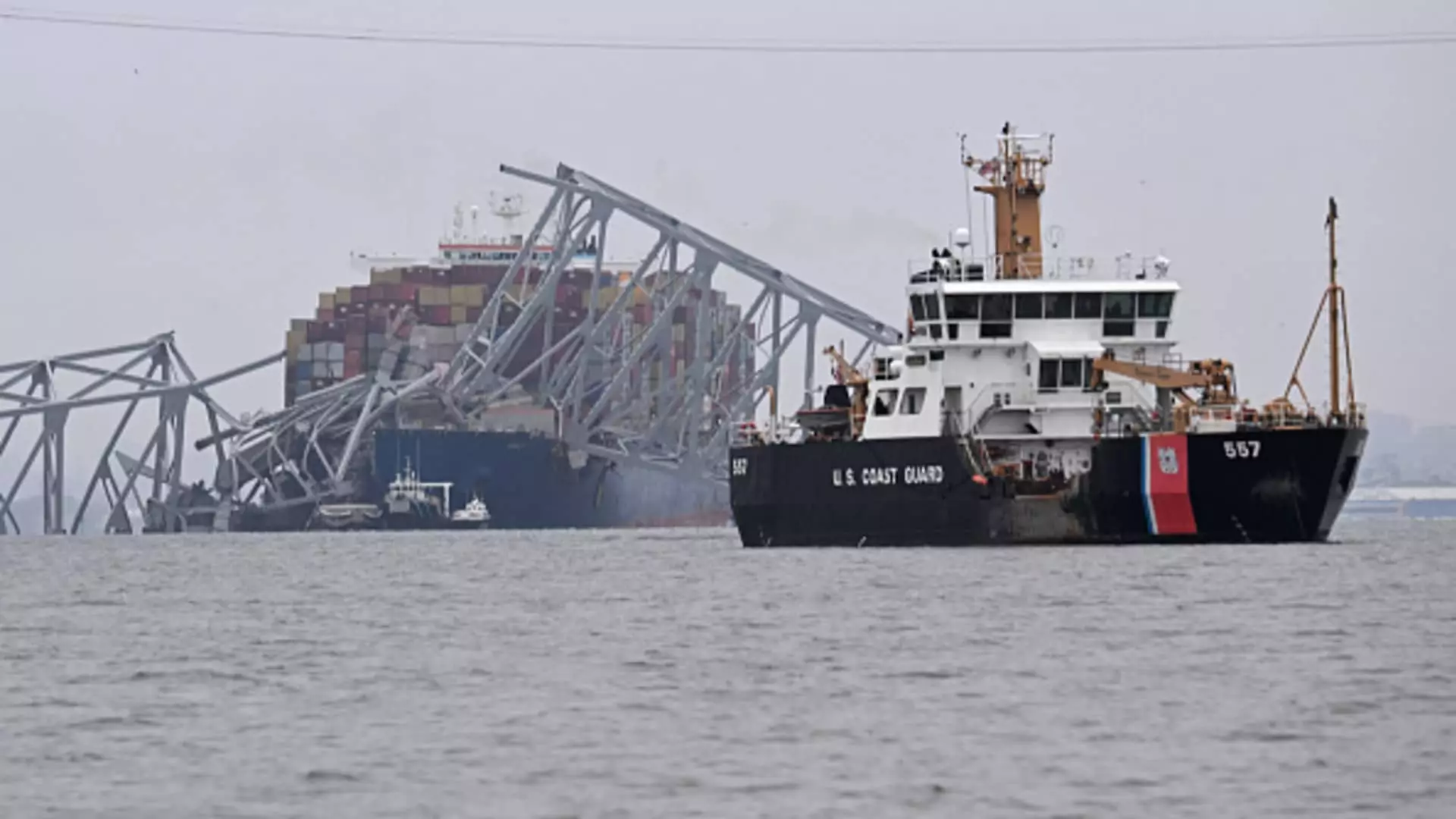The recent Baltimore bridge collapse has created a ripple effect across the automotive industry, prompting carmakers to assess their operations following the closure of the busiest U.S. auto port. The dramatic scene of a cargo ship hitting the Francis Scott Key Bridge and causing it to crumple into the water has resulted in six people presumed dead, with the Port of Baltimore now closed indefinitely. This closure has led logistics companies to urgently rearrange their import and export routes to other East Coast ports to ensure continuity in their supply chains.
Various car manufacturers have responded to the situation, with Mercedes-Benz USA CEO Dimitris Psillakis acknowledging the impact on Baltimore, one of the company’s four distribution centers in the U.S. Psillakis mentioned that other entry ports like Brunswick, Georgia, would help alleviate import pressures, although the full extent of the effects of the collapse remains to be seen. Similarly, Volkswagen Group of America stated that while its vessel operations were not expected to be significantly affected, trucking delays could occur due to traffic diversions caused by the bridge closure.
Sweden’s Volvo Group mentioned that it did not anticipate a major impact but was conducting checks on its U.S. production facilities in response to the collapse. Major U.S. firms such as General Motors and Ford, along with Japanese manufacturers Toyota, Nissan, and Mitsubishi, stated that they are evaluating the situation and preparing to divert operations if necessary. While these companies do not foresee significant disruptions, they are closely monitoring the developments at the Port of Baltimore.
The Port of Baltimore handled a substantial number of cars and light trucks last year, totaling 847,158 vehicles. With the port now inaccessible, diversions to other ports such as those in New York, New Jersey, Virginia, Georgia, and South Carolina are likely, contributing to extended journey times for shipments. This event has also reignited concerns in the global shipping industry, especially in light of ongoing volatility caused by attacks on ships in the Red Sea en route to the Suez Canal.
Christian Roeloffs, CEO of logistics platform Container xChange, highlighted the significance of the Baltimore port in the handling of specialized cargo and bulk materials, emphasizing its role as a crucial link in many supply chains. Roeloffs expressed concerns that delays in cargo movement could lead to inventory shortages, particularly impacting industries like automotive that rely on timely deliveries from various parts of the world. This further underscores the potential ramifications of the Baltimore bridge collapse on the broader global supply chain.
The aftermath of the Baltimore bridge collapse has prompted carmakers to reassess their operations and logistics strategies in response to the closure of the busiest U.S. auto port. While efforts are being made to minimize disruptions and reroute shipments to alternative ports, the full impact of the incident remains uncertain. As the automotive industry and global shipping sector grapple with the consequences of this event, it serves as a stark reminder of the interconnected nature of supply chains and the vulnerabilities that can arise from unexpected disruptions.

Leave a Reply